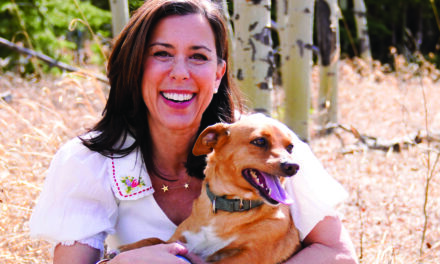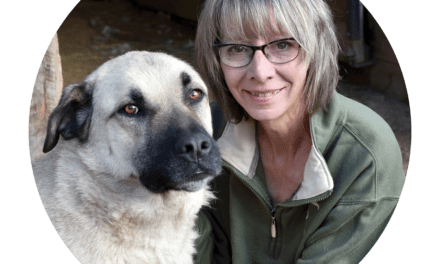I remember the three months between my mom’s cancer diagnosis and her death as a blur of events. My brothers and I all recall things differently, and in a different order. We were truly drinking from a firehose as we learned about cancer, glioblastoma, short- and long-term care options, insurance, private health care, home health care and more. At the same time, we were processing complicated emotions because our mom had terminal cancer. Most nights I’d plop into bed and sob, as it was the only place in my life where I could take a moment to truly process what was happening. That is, until my mom entered hospice care. It was literally like the sun suddenly shone down on us. We all were able to exhale and bask in the knowledge that our mom was being cared for by people who understood exactly what she needed, exactly what was happening and, eventually, exactly how to support her and us as we watched her begin to take her last breaths. This was a life-changing experience for me.
Since my mom passed away in 2011, I’ve had many friends who stood next to parents, other relatives and friends as they faced the end of their life. I have been honored to help them navigate these waters. In all of those situations, I shared the story of the relief that hospice brought our family. I want people to understand what a gift hospice care is. It’s human nature when faced with a terminal diagnosis to turn to the promise of the latest new treatment. So, coming to the decision to end curative treatment and turn to hospice care is often very difficult for patients and their families. But the aftermath of that decision can be a wave of peace. It may be the first time in the patient’s journey that they have felt wrapped in loving care and are able to relax.
I recently spent a day celebrating the life of a friend who passed away from cancer. She was young and healthy and her diagnosis of stage IV cancer was a shock, to say the least. She leaned into her treatment head first. Braved the battle, so to speak. To further the battle analogy, which has become pervasive in our culture, she became more bloodied and bruised the longer her battle lasted. She reached a point where the battle was costing her precious time with her family and precious time doing the things that she loved. She courageously decided to wave the white flag, but she didn’t give up. She claimed her life from the battle that she never asked for in the first place. I met her hospice nurse at her celebration of life. She had a clear picture of her purpose in this family’s life—not only as a caregiver for my friend during her final months, but also for my friend’s family. She told me she loved what she did. In fact, every hospice nurse I’ve ever met has told me that they love what they do.
We celebrate birth; it’s a happy event. New life, new beginnings, new families. Yet we whisper about death, and acknowledging death, especially of those who have gone too soon, gives us anxiety with the knowledge that our lives are finite. They will end—of that there is no argument. Hospice care allows people to die surrounded by comfort and care. There is no greater blessing than seeing someone you love passing in peace, knowing that they are no longer suffering.
If you would like to learn more about what hospice entails, and hear stories from families whose lives have been changed by hospice, I encourage you to visit the website of our local hospice provider, Mount Evans Home Health Care & Hospice, at mtevans.org (they also provide home health care and many support services for their patients and family members). They are angels among us.




